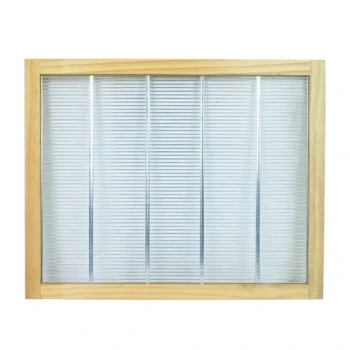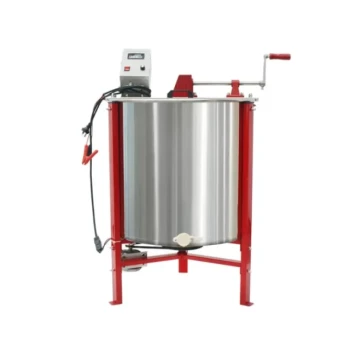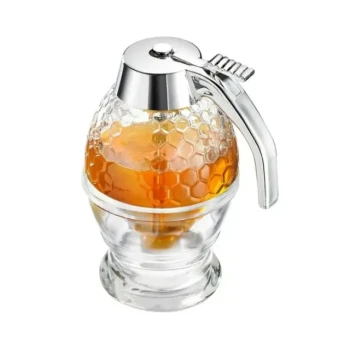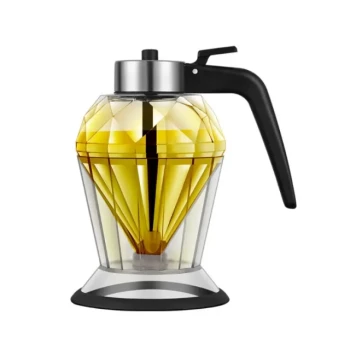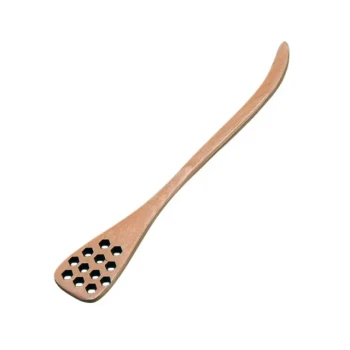In choosing a queen excluder, you must weigh the long-term durability and rigidity of metal against the lower cost and lighter weight of plastic. Metal excluders offer superior longevity but are more expensive and can bend, while plastic excluders are budget-friendly and easy to handle but can become brittle and warp over time.
The decision between metal and plastic is less about finding a "better" material and more about aligning the specific properties of the excluder with your beekeeping goals, management style, and budget.
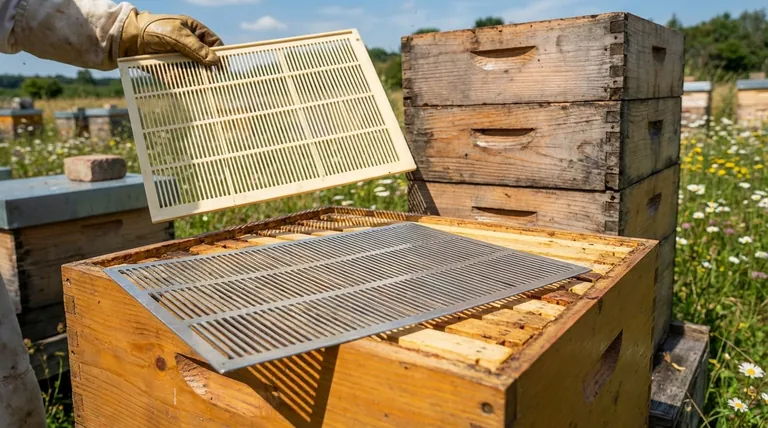
A Head-to-Head Comparison: Metal vs. Plastic
Understanding the fundamental differences in material properties is the first step. Each factor directly impacts your workflow and the hive environment.
Durability and Longevity
A metal excluder, typically made of galvanized or stainless steel, is built for the long haul. It can withstand years of use and is easier to clean with a hive tool without causing damage.
Plastic excluders, conversely, are more susceptible to damage during cleaning. They can become brittle with age and exposure to UV light, leading to cracks or breaks.
Cost and Initial Investment
Plastic is the clear winner for beekeepers on a budget. The lower price point makes it an accessible choice for beginners or those scaling up to a large number of hives.
Metal represents a higher upfront investment. However, its extended lifespan can make it more cost-effective over many seasons.
Weight and Ease of Handling
The lightweight nature of a plastic excluder is a significant advantage during hive inspections. Lifting honey-filled supers is demanding enough without adding the weight of a heavy metal grid.
Metal excluders are heavier and more rigid, which can make them more cumbersome to remove and replace, especially when coated in propolis.
Bee Passage and Frame Spacing
A key, often overlooked, difference is the profile of the barrier itself. Metal excluders are often made from wire or stamped metal, which can have sharp edges that may damage bees' wings.
Plastic excluders are typically molded with smoother, rounded edges, which many beekeepers believe are gentler on the bees as they pass through.
The Deeper Question: To Use an Excluder or Not?
The choice of material is secondary to the strategic decision of whether an excluder fits your management philosophy. Its purpose is to confine the queen to the brood boxes, ensuring honey supers remain free of eggs, larvae, and pupae.
The Primary Reason to Use an Excluder
Excluders are most valuable when you need to guarantee brood-free honey. This simplifies the harvesting process and is critical for producing pure, high-quality honey.
They are also a powerful tool for managing highly prolific queens, such as those from wild-caught or Africanized genetics, who may aggressively expand the brood nest into honey supers.
When an Excluder Might Be Unnecessary
Some bee colonies, particularly those with locally-bred queens, naturally maintain a compact brood nest. The queen is less inclined to travel upward, making an excluder redundant.
Observing your specific colonies is key. If your bees consistently keep the brood chamber tidy and store honey readily above it, you may achieve better results without an excluder.
Understanding the Trade-offs and Best Practices
Using an excluder is not without potential downsides. Effective use requires awareness of bee behavior and proper installation.
The Risk of a "Honey-Bound" Hive
Some colonies are reluctant to pass through the excluder. This can cause them to store nectar in the brood chamber instead of the supers, reducing the queen's laying space and potentially limiting colony growth.
Ensure a Perfect Fit
The excluder must fit squarely on the hive body with no gaps around the edges. Even a small space is an open invitation for a determined queen to slip through, defeating the entire purpose of the device.
Mitigate Reluctance with an Upper Entrance
Providing a small upper entrance above the excluder gives foraging bees a "shortcut." It reduces traffic and wear-and-tear on bees squeezing through the grid, which can encourage them to work the honey supers more readily.
Perform Regular Checks
Bees may block the excluder with propolis or drone bees can get stuck. Periodically check to ensure the slots are clear and worker bees can move freely between the brood chamber and the supers.
Making the Right Choice for Your Apiary
Your decision should be a deliberate one based on your operational priorities.
- If your primary focus is long-term durability and you run a small number of hives: A metal excluder is likely a sound, buy-it-for-life investment.
- If your primary focus is low cost and easy handling, especially with many hives: A plastic excluder offers significant practical and financial advantages.
- If you manage highly prolific bees or prioritize exceptionally pure honey: An excluder is a critical tool, and the choice of material is secondary to its proper use.
- If your colonies naturally keep brood separate from honey stores: You may find that the best excluder is no excluder at all.
Ultimately, the right equipment is the one that helps you work in harmony with your bees to achieve your goals.
Summary Table:
| Feature | Metal Queen Excluder | Plastic Queen Excluder |
|---|---|---|
| Durability & Longevity | Excellent; built for long-term use | Good, but can become brittle over time |
| Initial Cost | Higher upfront investment | Lower cost; budget-friendly |
| Weight & Handling | Heavier and more rigid | Lightweight and easy to handle |
| Bee Passage | Wire/metal may have sharp edges | Smoother, rounded edges are gentler on bees |
Ready to equip your apiary with the right queen excluders?
As a trusted wholesale supplier to commercial apiaries and beekeeping equipment distributors, HONESTBEE provides durable, high-performance beekeeping supplies that align with your operational goals and budget. Whether you prioritize the long-term value of metal or the practical advantages of plastic, we have the solutions to support your success.
Contact HONESTBEE today to discuss your wholesale needs and get expert advice on the best equipment for your beekeeping operation.
Visual Guide
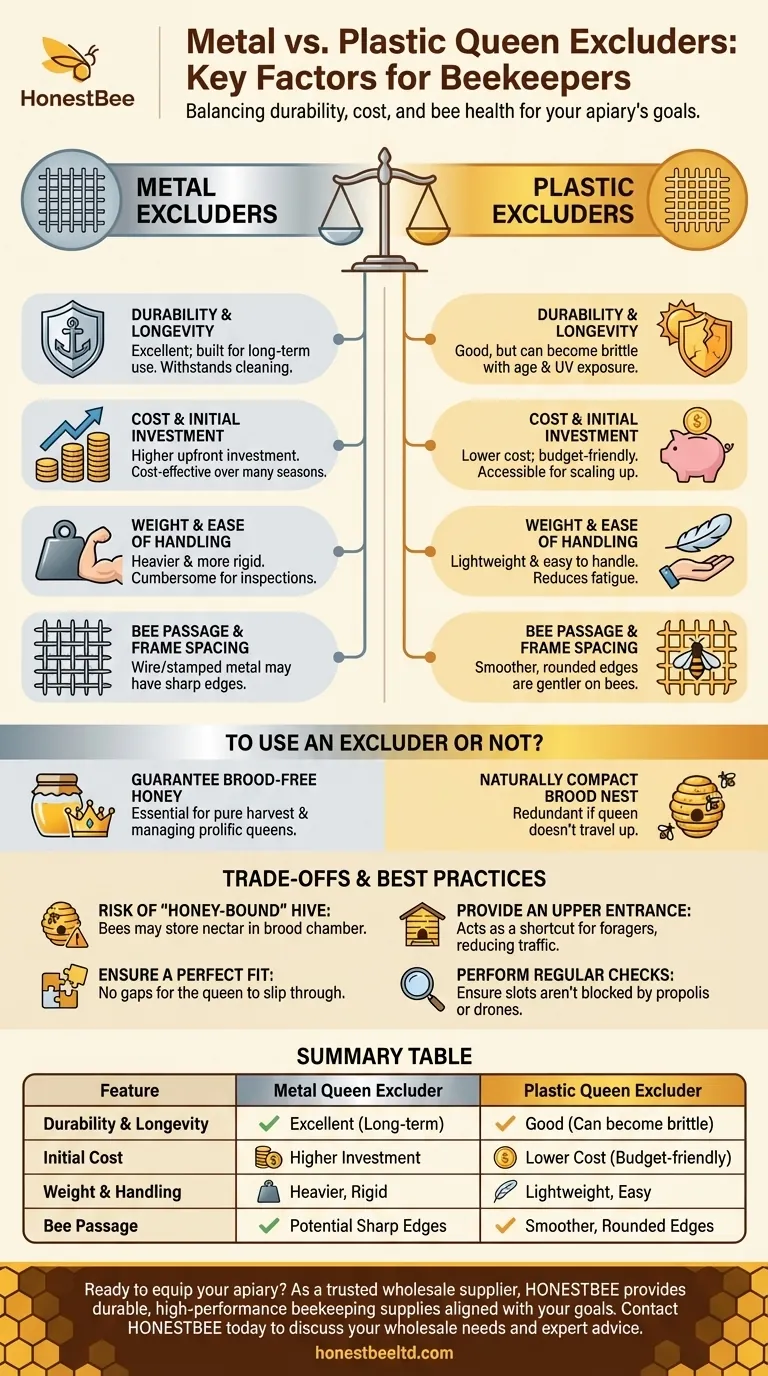
Related Products
- Plastic Queen Bee Excluder for Bee Hive Wholesale
- Professional Plastic Queen Excluder for Modern Beekeeping
- Premium Wood Framed Metal Wire Queen Bee Excluder
- Metal Queen Bee Excluder for Beekeeping
- High Performance Plastic Queen Excluder for Beekeeping and Apiary Management
People Also Ask
- What materials are commonly used to make queen excluders? Metal vs. Plastic Guide
- How do queen excluders contribute to the quality of harvested honey? Enhance Purity and Streamline Commercial Production
- What are the advantages of using queen excluders? Boost Honey Production & Hive Management
- What is the function of a queen excluder in beekeeping operations? Optimize Hive Management & Honey Purity
- What makes polyurethane foam environmentally friendly? The Surprising Benefits of a Durable, Inert Material


